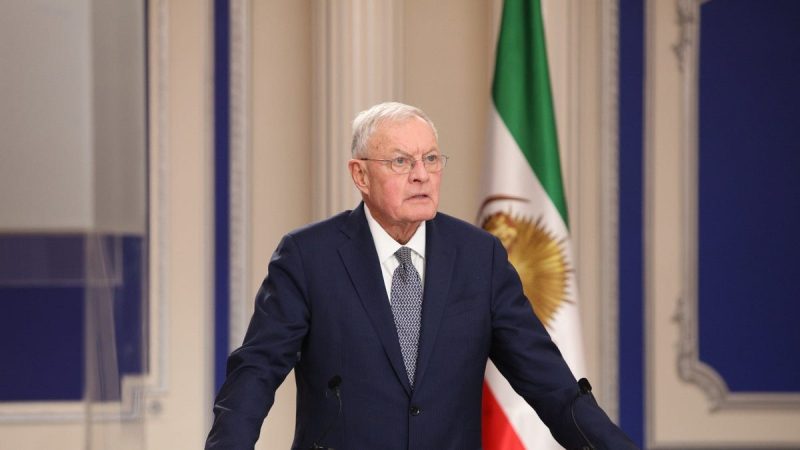President-elect Donald Trump’s incoming special envoy for Ukraine and Russia, Ret. Lt. Gen. Keith Kellogg, recently said the United States must return to the policy of ‘maximum pressure’ and that the Iranian regime’s weakness has reopened what the future of Iran will look like.
‘I believe this year should be considered a year of hope, it should be considered a year of action, and it should be considered a year of change,’ Kellogg, who served in Trump’s first administration, said at an event sponsored by an Iranian opposition group, The National Council of Resistance of Iran, in Paris.
The retired lieutenant general said that Iran’s development and acquisition of a nuclear weapon would be the most destabilizing event for the Middle East. Kellogg reminded the opposition group that then-President Trump walked away from the Iran nuclear deal during his first term, even with opposition from those who served in the first administration.
‘For the United States, a policy of maximum pressure must be reinstated, and it must be reinstated with the help of the rest of the globe, and that includes standing with the Iranian people and their aspirations for democracy,’ Kellogg said.
Trump withdrew from the Joint Comprehensive Plan of Action, also known as the Iran nuclear deal, during his first term in 2018 and reapplied crippling economic sanctions. While some, including Israeli Prime Minister Benjamin Netanyahu, applauded the move, the leaders of the United Kingdom, France and Germany had urged the president to remain committed to the deal.
The remarks, made just days before Trump is set to take office for his second term, are yet another signal of how a second Trump administration will face the threat posed by Iran in a new environment with much of the Middle East embroiled in conflict since the Oct. 7 terrorist attack on Israel.
‘The beginning of the end of Iran’s primacy began, ironically, a year ago, on 7 October,’ Kellogg said.
Kellogg noted that pressures applied to Iran would not only be kinetic or military force, but must include economic and diplomatic as well.
Maryam Rajavi, president-elect of the Iranian opposition group, the National Council of Resistance of Iran (NCRI), told the event that the fall of Syria’s longtime dictator, Bashar al-Assad, provided a unique opportunity for Iranians to remake their own future.
‘Khamenei and his IRGC were unable to preserve the Syrian dictatorship, and they certainly cannot preserve their regime in the face of organized resistance and uprising. The regime will be overthrown,’ Rajavi said.
Rajavi said it was a decisive moment in the history of Iran. The National Council of Resistance of Iran, according to Rajavi, has a path forward for a democratic Iran, which includes a step-by-step process after the overthrow of the current regime. A transitional government would be formed for a maximum of six months, and its main task would be to hold free elections for a Constituent Assembly and transfer power to the people’s representatives.
‘The overthrow of the mullahs’ regime is the only way to establish freedom in Iran and peace and tranquility in the region,’ a hopeful Rajavi said.
Kellogg championed these ideas and said a ‘more friendly, stable, non-belligerent, and a non-nuclear Iran’ must be the near term goal and that the United States needs to exploit Iran’s current weaknesses.
Iranian Foreign Ministry spokesperson Esmail Baqaei slammed France for hosting what the Iranian government called a ‘terrorist group’ and accused the French government of violating its international legal obligations to prevent and fight terror.
Here are the greatest Inauguration Day moments in US history
Presidential inaugurations mark some of the most defining moments in U.S. history, allowin…















